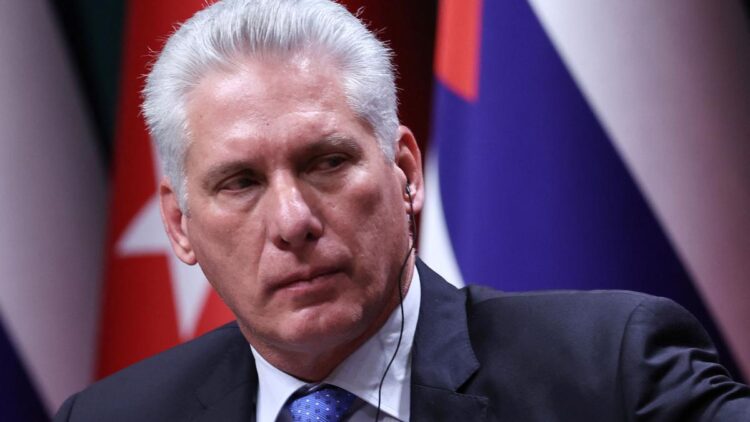[ad_1]

Cuban President Miguel Diaz-Canel. File photo
| Photo Credit: AFP
Cuba’s National Assembly ratified President Miguel Díaz-Canel on Wednesday, April 19, 2023 for a new five-year term, in a decision to maintain continuity as the island faces a deep economic crisis.
More than 400 representatives to the Assembly who were ratified by voters in March took office early Wednesday and then convened the chamber to elect the government’s leadership and the president. Díaz-Canel obtained the votes of 459 of the 462 legislators present.
In his new term, Mr Díaz-Canel must deal with a severe recession prompted by the COVID-19 pandemic, soaring inflation triggered by a series of financial policy decisions and strict sanctions imposed by the U.S. He also must grapple with discontent among many Cubans expressed in part through record rates of emigration to the U.S. and elsewhere.
The President himself expressed his strong “personal dissatisfaction” in December that he was not able to improve the economic situation. But he rejected any change to Cuba’s political system. which enshrines the Communist Party in the constitution as the leader of the society and the only legal party.
“I refuse to demonize socialism, because socialism is, in essence, a system aimed at achieving the greatest possible social justice,” Mr. Díaz-Canel said at the time.
Mr. Díaz-Canel in 2018 became Cuba’s first leader in six decades not surnamed Castro, after former President Raul Castro went into semi-retirement following his stint as president. He had taken over from his brother, Cuba’s revolutionary leader Fidel Castro, in 2016.
The country had “hopes of political and economic changes” at the time, but Mr. Díaz-Canel instead has become the standard bearer of continuity, said Luis Carlos Battista, a Cuban-American analyst and lawyer living in Washington.
“The president, five years after being ratified by the National Assembly, has not yet managed to convey to the public an idea of progress,” Battista said.
In recent years, the economy has collapsed, with GDP falling 11% in 2020 after the pandemic struck. Inflation from January to October of last year was 40% at official rates — and even more when the black market it taken into account.
In July 2021, Díaz-Canel faced the country’s first major wave of protests in at least two decades, which left one dead, stores vandalized, and cars destroyed and which the government accused groups in the U.S. of fomenting.
Cuba saw some 330,000 islanders leave for the United States between October 2021 and December 2022, a record number. Others departed for other countries in Latin America, and in Europe.
“The panorama is quite bleak,” said Michael Shifter, a member of the Inter-American Dialogue organization and an adjunct professor at Georgetown University. He said the president’s “main challenge will be to activate the economy.”
“The energy system has collapsed. The level of unrest has risen dramatically, emigration is among its highest points in history,” Shifter said.
[ad_2]
















